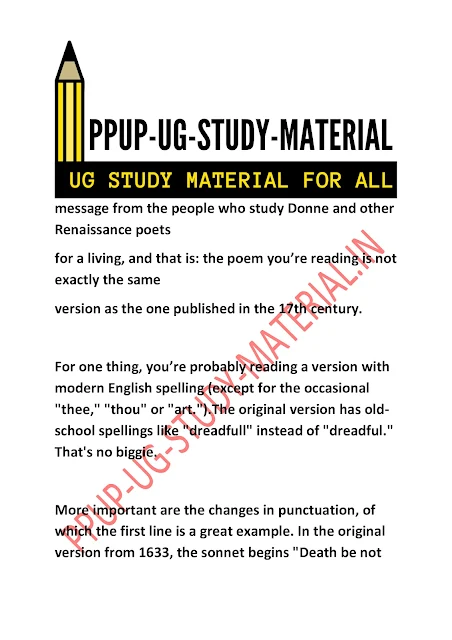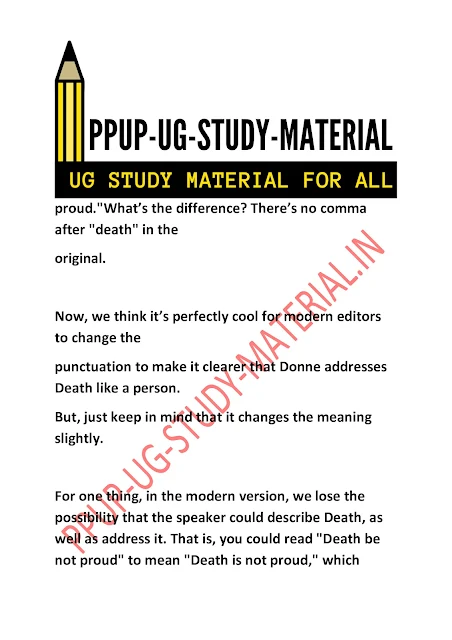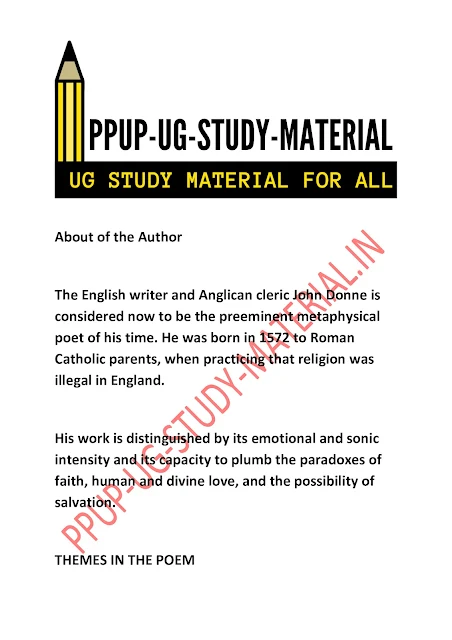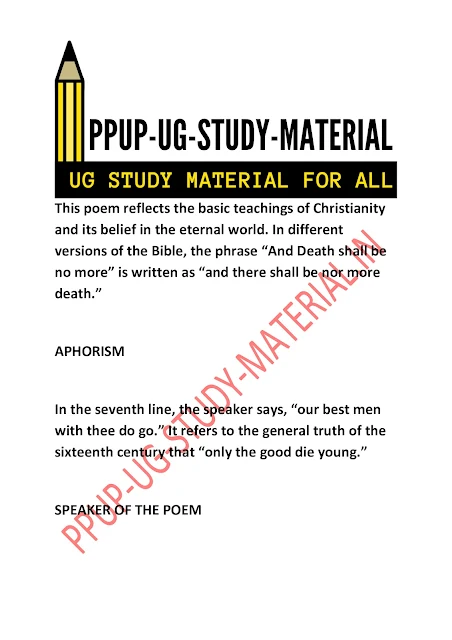Death be not Proud notes PDF - ppup part 1 english honours notes and study material pdf
[ Death be not Proud notes PDF | ppup part 1 english honours notes and study material pdf ]
In this BlogPost we'll cover These Topics - ppup part 1 english honours notes and study material pdf, PPUP part 1 english honours ug study material download, PPUP part 1 english honours ug study material free, PPUP part 1 english honours ug study material online, PPUP part 1 english honours ug study material pdf, PPUP part 1 english honours ug study material quora, patliputra university guess paper 2024 pdf, Death be not Proud notes PDF, Death be not proud analysis, Death not be proud summary, Death be not proud questions and answers PDF, Death be not proud summary line by line, Death be not proud PDF, Death not be proud notes line by line, Death not be proud notes pdf in english, Death not be proud notes pdf line by line, death be not proud theme pdf, Death be not Proud Notes
Introduction to Death be not Proud notes PDF
About the Characters of Death be not Proud notes PDF | ppup part 1 english honours notes and study material pdf
About the Author of Death be not Proud notes PDF | ppup part 1 english honours notes and study material pdf
Death not be proud notes line by line stanza explained | ppup part 1 english honours notes and study material pdf
Death not be proud summary
Critical analysis of Death be not Proud notes PDF | ppup part 1 english honours notes and study material pdf
Conclusion for Death be not Proud notes PDF
I hope You got what you were looking for ..reading this post Death be not Proud notes PDF | ppup part 1 english honours notes and study material pdf ... and if you got any query ..you can comment below so we can provide you further assistance.




















![Death not be proud notes line by line stanza explained | ppup part 1 english honours notes and study material pdf The "best men […] soonest" follow this dude Death into the afterlife, thinking that he will give the "rest of their bones," and free or "deliver" their Christian souls from all the pain of earthly life. (Note that "deliver"can also refer to childbirth, which adds to the whole "new life" idea.)They are the hardest-working and bravest people in society, so they get to kick their feet back and enjoy eternal rest before everyone else. (We think that, if Donne lived today, he would include women in this group, as well.)The speaker almost](https://blogger.googleusercontent.com/img/b/R29vZ2xl/AVvXsEhXPAjw48jIFgL2JbokCJVk-iSf-yxXeiex-654NwqQrVwGDAKRBU8EzoAPa70m7m940kv_z_WdO9VMP3M9lKA2c_sZ3VbVtNrshj8y7xiBO4e2sG9IFB5eELTO3AKbW5rmIIaEszkDyseRY7wLmEV9wn0Kw-YotkVEYa8TagKLsIobJ_RzrgI4yXR0/w452-h640-rw/Death%20be%20not%20Proud%20notes%20PDF-18.jpg)


























































No comments